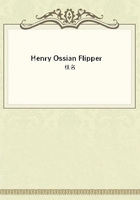
第97章
"The colored cadet is now in his third year. The great question at West Point is, Will he pass his examination? No one will know till the 30th of June.
It is my impression that the young officers have marked him so low that he will be found deficient.
The young officers hate him almost as bad as the cadets, and whenever they could make a bad mark against him they have done it.
"'Does anyone ever speak to you now?' I asked.
"'No. I dare not address a cadet. I do not want to provoke them. I simply want to graduate. I am satisfied if they do not strike or harm me; though if I had a kind word now and then I should be happier, and I could study better,' Then the colored boy drew a long sigh.
"To-day I met General Howard, who was present at the colored cadet's court-martial. I asked him to tell me about it.
"'Well, Mr. Perkins,' said the General, 'they tried to make out that the colored boy lied.'
"'Yes,' I interrupted, 'and they all say he did lie at the Point now. How was it?'
"'It was this way: They accused him of talking on parade, and, while trying to convict him out of his own mouth, they asked him "If on a certain day he did not speak to a certain cadet while on drill?" "I did not speak to this cadet while on drill the day you mention," answered Cadet Smith, "for the cadet was not in the parade that day."'
"This answer startled the prosecutors, and, looking over the diary of parade days, they were astonished to find Cadet Smith correct.
"'What then?' I asked.
"'Why they accuse him of telling a lie in spirit, though not in form, for he had talked on a previous day. Just as if he was obliged to say any thing to assist the prosecutors except to answer their questions.'
"General Howard believes Cadet Smith to be a good, honest boy. I believe the same.
"ELI PERKINS."
(From the Savannah (Ga.) Morning-News.)
"Lieutenant Flipper seems to have gone back on his Atlanta friends. He came home from West Point with a good Academy record, behaved himself with becoming dignity. The officers at the barracks treated him--not socially, but as an officer of the army--with due respect, as did the citizens of Atlanta, who felt that he had won credit by his good conduct and success.
But in an evil hour the colored friends (?) of Flipper gave him a reception, and in full uniform he made them a speech. Now speech-making is a dangerous thing, and this colored warrior seems to have been made a victim of it. He distorted the official courtesies of the officers at the barracks into social courtesies, and abused the white people of the South because they did not give him and his race social equality. Not only were sensible colored people displeased with his remarks, but many white citizens who went to the meeting friendly to Flipper left disgusted with his sentiments."**If a man walks on the streets with me, invites me to his quarters, introduces me to his comrades, and other like acts of courtesy, ought I to consider him treating me socially or officially? I went to the garrison in Atlanta to pay my respects to the commanding officer. I expected nothing. I met an officer, who, with four others, had introduced himself to me on the cars. My official call had been made. He took me around, introduced me to the officers, and showed me all possible attention. I met another officer in the city several days after this. He offered cigars. We walked up and down the streets together.
Many times did we hear and comment upon the remarks we overheard: "Is he walking with that nigger?" and the like. He invited me into a druggist's to take some soda-water. I went in and got it, although it was never sold there before to a person of color. We rode out to the garrison together, and every attention was shown me by all. Another officer told me that before I came the officers of the garrison assembled to consider whether or not they should recognize me. The unanimous vote was "yes." Was all this official? No. It is the white people, the disappointed tyrants of Georgia, who try to distort social courtesies in official ones. The "many white"people were some half-dozen newspaper reporters, whose articles doubtless were partly written when they came.
"Old Si" in his spectacles was prominently conspicuous among them.
(From the Savannah (Ga.) Morning News.)
A COLORED ARMY OFFICER.
"Lieutenant Flipper is his name. He is a living result of the policy of Radicalism which has declared from the first its determination that, under any circumstances, the American citizen of African descent shall enjoy all the privileges of his white brethren. Carrying out this determination, and not dismayed at the fate of colored cadet Smith, who figured so largely in West Point annals a few years ago, cadet Flipper was sent to that institution to try his hand. He has graduated, and now holds the commission of Second Lieutenant of Cavalry in the United States Army, the first of his race who has ever attained such a position.